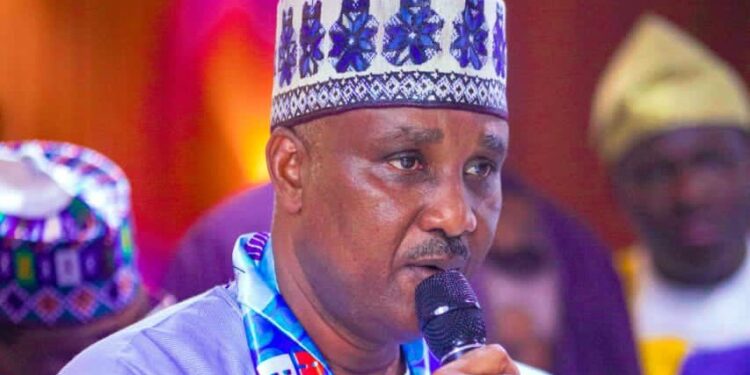Speaker of the House of Representatives, Tajudeen Abbas, has blamed insecurity in Nigeria on corruption, quest for materialism and not desire to perpetrate a certain religion.
Abbas spoke on Tuesday at the inauguration of the House of Representatives Ad hoc Committee on Border Security.
The speaker, who was represented by Ali Isa, the Minority Whip, said the hosue has resolved to ensure that Nigerians, irrespective of their ethnicity or religion, can live peacefully wherever they choose.
He said the committee is part of the house’s efforts to provide “concrete” solutions to the violent attacks by “fringe members of the society that have led to the misrepresentation of our country, and the distortion of the narrative of violence, which is fueled by greed, corruption and sheer avarice, rather than by any religious agenda”.
Abbas’ stance comes in the wake of threats by US President, Donald Trump, over the alleged persecution of Christians in Nigeria.
The speaker said the nation’s porous borders pose an existential and economic threat to Nigeria.
“As members of the national assembly, we have a constitutional mandate to ensure that agencies charged with safeguarding our borders do their jobs properly, especially now that the porous borders constitute both an economic and existential threat, eroding public confidence in the capacity of the state to protect its citizens and its territorial integrity,” Abbas said.
“In some ways, your borders define you as a nation. It shows what kind of people you allow into the country, how you protect citizens from harm, how you handle trade and commerce, how you welcome visitors.”
He noted that the goal of the committee is to identify vulnerabilities, operational shortcomings and compromised border officials complicit in the porosity of the nation’s borders.
“You must review how monies allocated to relevant agencies to protect our borders are spent, how extant international agreements and protocols may have complicated the situation, and suggest policy or legislative changes,” he told the committee.
“The task of securing our borders is a multi-dimensional and multi-agency responsibility. It demands synergy, transparency, and patriotism from all institutions of government involved.
“Border security cannot be achieved in isolation; it requires a whole-of-government and whole-of-society approach — one that harmonises the efforts of the military, paramilitary, intelligence, and law enforcement agencies; promotes intelligence sharing; and ensures that communities at the borders are active partners in safeguarding our nation.”
Abbas said the legislature is committed to strengthening Nigeria’s border governance through effective legislation, rigorous oversight, and adequate budgetary support.
The presiding officer of the green chamber noted that the parliament is determined to ensure that all appropriated funds meant for border security are utilised judiciously and that the principles of accountability, transparency, and efficiency are upheld.
He added that the committee’s findings and recommendations will guide the house in initiating legislative reforms and policy interventions to modernise border security frameworks.
Abbas said the frameworks may include reviewing existing laws, such as the Immigration Act and the Customs and Excise Management Act, as well as related statutes, to reflect emerging global best practices and security realities.
















